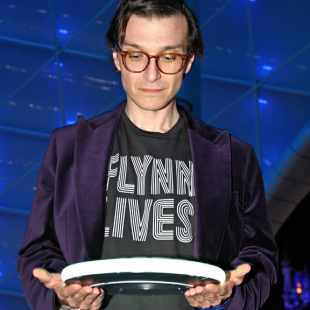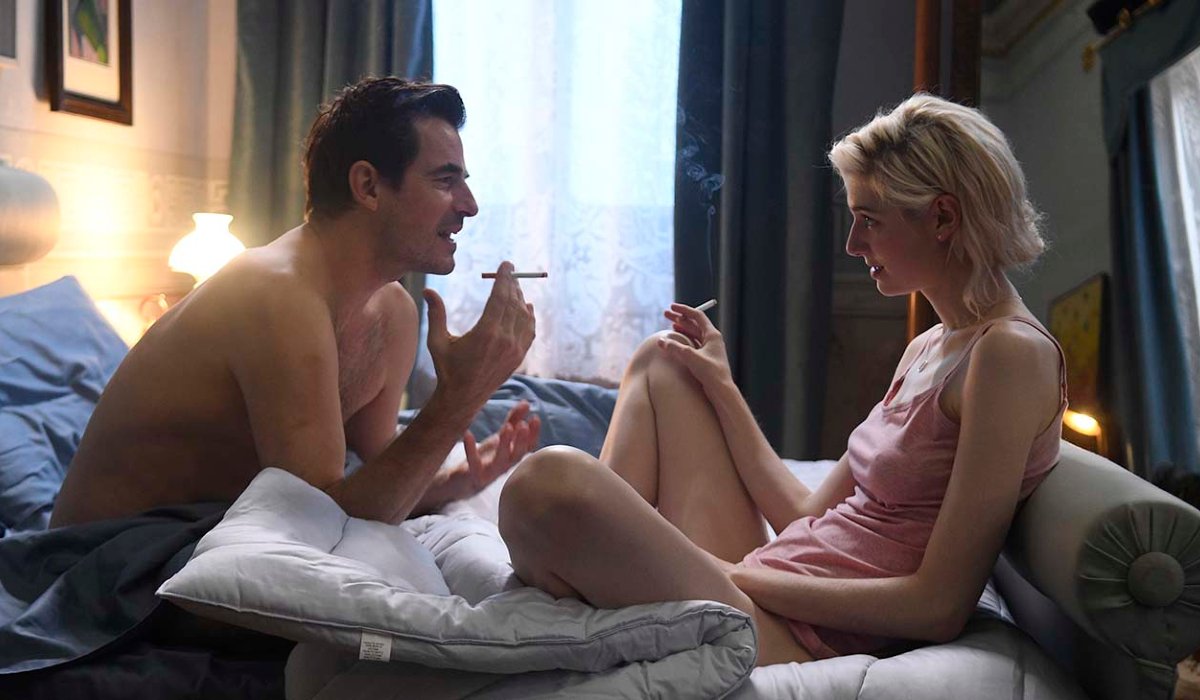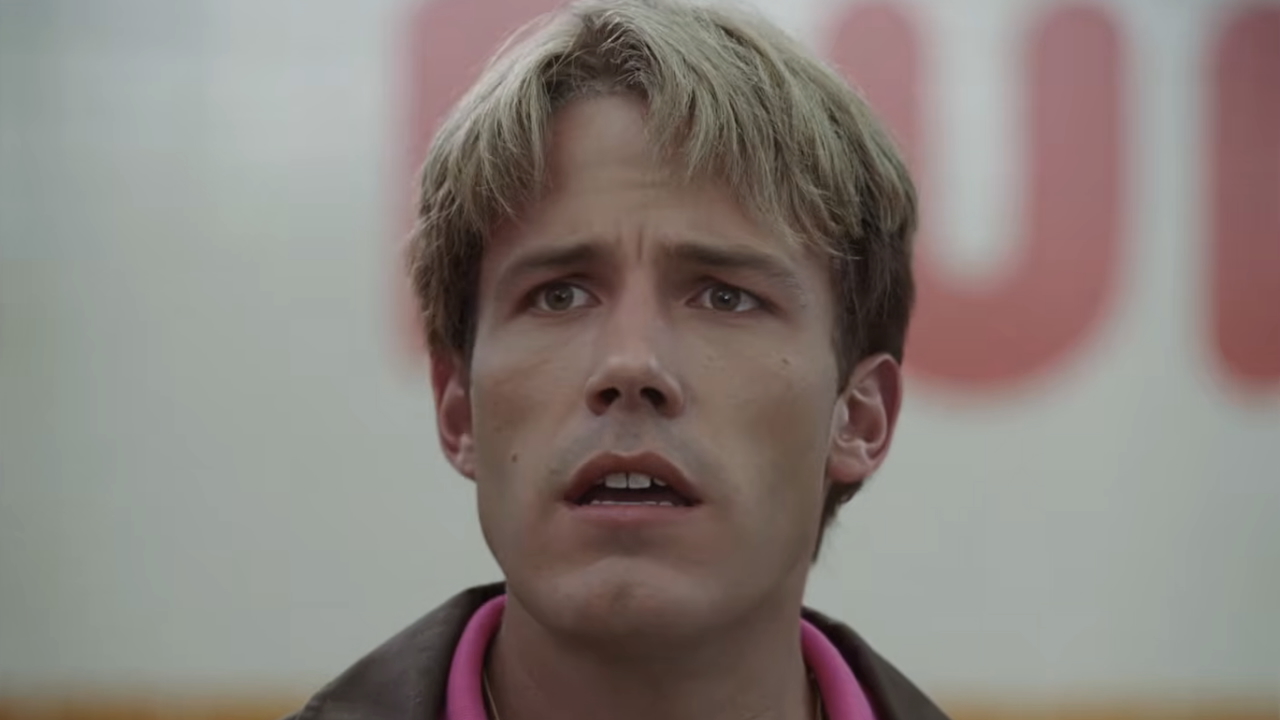Art is a very subjective point of conversation, as what one person sees isn’t always what the general public will accept as the “correct” interpretation. This is why the role of the critic is both vital and optional when it comes to the discourse surrounding artistic works such as paintings, literature, and, of course, movies.
The Burnt Orange Heresy plays around with this very subject, as a critic is one of the main figures at the heart of this venture into the world of art collecting, deception, and thievery. With no shortage of twists and turns, director Giuseppe Capotondi and writer Scott B. Smith create a slick thriller out of Charles Willeford’s novel of the same name.
Unfortunately, the style outweighs the substance, and the movie leaves a bit to be desired by the time it ends. As we follow art critic James Figueras (Claes Bang), we see him meet and become entangled with American tourist Berenice Hollis (Elizabeth Debicki). Tagging along as his sort of accomplice, Bernice embarks with James on fulfilling a simple-but-risky task.
Receiving an invitation from well-to-do art buff Joseph Cassady (Mick Jagger), James is persuaded to try and secure a painting from the reclusive artist in residence on Cassady’s estate, Jerome Debney (Donald Sutherland). What seems like a simple game of deception and thievery turns into something much more complicated, right up to the very final moments of The Burnt Orange Heresy.
The Burnt Orange Heresy is an intriguing drama that trades mostly on style.
For as thin as The Burnt Orange Heresy can be at times, Giuseppe Capotondi’s film glides on gorgeous and greased rails. Coming in at a little over an hour and a half, there’s very little time to catch one’s breath, as we see James and Berenice’s meeting and further adventures in befriending Jerome Debney get underway rather quickly.
With a mix of ultra modern and rustic charm in the various Italian settings of The Burnt Orange Heresy, the surroundings are always lit, framed, and shot to maximum beauty by cinematographer David Ungaro. Between the gorgeous settings, and the attractive core cast at play, it’s not hard to feel like you’re being treated to a glossy affair reminiscent of a more film noir version of The Thomas Crown Affair.
Yet for all of the beauty and entertainment that’s on display throughout this quick and easy picture, The Burnt Orange Heresy tends to be a little too straightforward in its ambitions. That ultimately leaves the viewer wanting more, but for all the wrong reasons.
Your Daily Blend of Entertainment News
The story, and its characters, are never really used to their full potential, despite The Burnt Orange Heresy’s entertaining results.
A little more thematic digging and background could have fleshed out the film into the symbolic caper it’s really trying to be. This is a shame, considering Claes Bang and Elizabeth Debicki’s chemistry works rather well, all things considered.
The film feels like even more of a waste when taking into account two fantastic supporting performances by Mick Jagger and Donald Sutherland. These are two actors who always seem game for what a director can throw their way, and seeing these seasoned vets dance around morality and artistry with Bang and Debicki takes The Burnt Orange Heresy to some of its few absolute high points. Jagger in particular seems to relish his return to the world of acting with this project, and one could hope that he'll continue to indulge in that passion as it's a true delight to watch him work.
Instead, what we’re left with is a tale that’s flat out telling us what we should be feeling about its well-assembled cast. James is a morally ambiguous art critic whose cynicism allows him to do what it takes to cash in, while Berenice is supposed to be his conscience trying to stop him from succumbing to his darker impulses. With those archetypes well enforced throughout The Burnt Orange Heresy, you can figure out most of the film’s plot once it kicks into a certain gear. If there were more cleverly employed plot devices and details that could distract the audience from reading ahead in the plotline, the sum total of Capotondi’s beautiful and economical work could have worked out all the better.
By time The Burnt Orange Heresy is over, you’ll be shocked by its conclusion, but wondering where exactly the ending came from.
The true energy of The Burnt Orange Heresy only kicks in during the last stretch of the movie, and in those moments it comes alive with a sense of urgency and panic that should have been infused throughout the rest of the feature. Choices are made, consequences feared, and Mick Jagger gets to play a line of delightful menace that’s ambiguous in its intent. It’s the lack of wind up that make the finale of The Burnt Orange Heresy a bit confusing, as all of a sudden the moral quandaries that were being flirted with before are now consummated with fast and deliberate speed.
Making for an interesting ride, as well as a lightning quick finale, the ending will have you asking questions about whether or not you missed a couple steps along the way. An adult thriller that skimps on the details, but still piles on enough flash to entertain in its relatively brief run, The Burnt Orange Heresy is more of a pleasing distraction than a deep and meaningful work of art. Of course, that’s just the opinion of a critic, and this film seems to have its own opinions on how much weight that carries.

Mike Reyes is the Senior Movie Contributor at CinemaBlend, though that title’s more of a guideline really. Passionate about entertainment since grade school, the movies have always held a special place in his life, which explains his current occupation. Mike graduated from Drew University with a Bachelor’s Degree in Political Science, but swore off of running for public office a long time ago. Mike's expertise ranges from James Bond to everything Alita, making for a brilliantly eclectic resume. He fights for the user.

